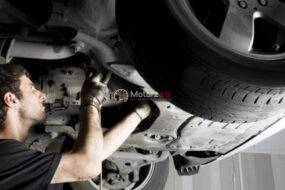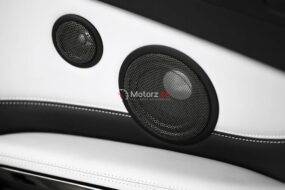The Ultimate Guide to Car Maintenance Every Owner Should Know is a significant investment, and with that investment comes the responsibility of proper car maintenance. Neglecting your vehicle can lead to costly repairs and reduced lifespan. In this comprehensive guide, we will delve into the essential aspects of car maintenance that every owner should know. Whether you’re a new car owner or a seasoned driver, these tips and guidelines will help you keep your vehicle in top-notch condition.
Regular Oil Changes
One of the fundamental aspects of Guide to Car Maintenance is changing the engine oil regularly. Engine oil lubricates the moving parts of the engine, ensuring they work smoothly. Over time, oil breaks down and becomes less effective, which can lead to engine damage if not replaced. Consult your car’s owner’s manual for the recommended oil change interval, typically every 3,000 to 5,000 miles.
Tire Maintenance
Check your tire pressure regularly and keep it at the recommended level specified in your car’s manual. Inspect the tires for signs of wear and tear and replace them when the tread depth becomes too low. Rotating your tires regularly also helps ensure even wear and extends their lifespan.
Brake Inspection
Inspect your brakes regularly for any signs of wear, such as squeaking or grinding noises, reduced responsiveness, or a soft pedal. If you notice any of these issues, it’s essential to have your brakes checked and serviced by a professional.Regular brake inspections are crucial for ensuring the safety and performance of your vehicle.
Fluid Checks
Your car relies on various fluids to function correctly, including coolant, transmission fluid, brake fluid, and power steering fluid. Regularly check the levels and condition of these fluids. If you notice any leaks or low levels, address them promptly to prevent damage to your vehicle’s systems.
Air Filter Replacement
The air filter in your car prevents contaminants from entering the engine, ensuring it runs efficiently. Over time, the air filter can become clogged, reducing engine performance and fuel efficiency. Check your owner’s manual for the recommended replacement interval, typically every 12,000 to 15,000 miles.
Battery Maintenance
A dead battery can leave you stranded, so it’s vital to maintain it properly. Clean the battery terminals regularly to prevent corrosion, and check the battery’s voltage using a multimeter. If your battery is getting weak or old, consider replacing it to avoid unexpected breakdowns.
Regular Washing and Waxing
Guide to Car Maintenance While it might seem purely cosmetic, keeping your car clean through regular washing and waxing is essential for its long-term health. Dirt, grime, and road salt can damage your vehicle’s paint and lead to rust. Timing Belt Replacement The timing belt is a critical component in many vehicles’ engines. Consult your car’s manual for the recommended replacement interval, typically between 60,000 and 100,000 miles. Failing to replace a worn timing belt can lead to severe engine damage.
Suspension and Alignment
A properly aligned and maintained suspension system ensures a smooth and comfortable ride while also preserving tire life. If you notice your car pulling to one side or experience a bumpy ride, have your suspension and alignment checked by a professional.
Keep Records
Maintaining a record of all your car’s maintenance and repairs is essential. This documentation can help you stay organized, track your vehicle’s history, and increase its resale value. Be sure to include receipts, service dates, and details of the work performed.
Learn Basic DIY Maintenance
While some car maintenance tasks require professional expertise, there are several basic tasks you can learn to do yourself, such as changing the air filter, replacing wiper blades, or checking and topping off fluids. Learning these skills can save you money and give you a better understanding of your vehicle.
Regular Inspections by Professionals
In addition to DIY maintenance, it’s crucial to schedule regular inspections and maintenance with a trusted mechanic or service center. They can identify issues that may not be apparent to you and address them before they become costly problems.
Conclusion
Guide to Car Maintenance is an essential responsibility for every vehicle owner. By following the tips and guidelines outlined in this ultimate guide, you can ensure that your car remains safe, reliable, and efficient throughout its lifespan. Regular maintenance not only saves you money in the long run but also contributes to your safety and the well-being of your vehicle. Make car maintenance a priority, and you’ll enjoy a smoother, trouble-free ride for years to come.





